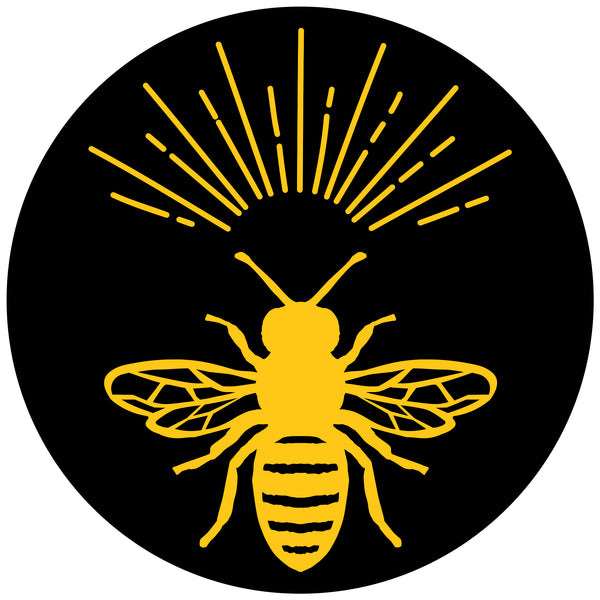In recent years, health-conscious consumers have been turning to natural, minimally processed foods rich in bioactive compounds. Among these trending superfoods, bee pollen has emerged as a nutritional powerhouse that's creating quite a buzz in the wellness community. But what exactly is bee pollen, and does it live up to the hype? Let's dive into the fascinating world of this golden granule and explore its potential benefits and risks.
What is Bee Pollen?
Bee pollen is the result of nature's intricate dance between bees and flowers. As bees collect nectar, they also gather pollen grains, which they mix with nectar and bee enzymes to form tiny, colorful pellets. These pellets are then transported back to the hive on the bees' legs, where they serve as a crucial food source for the colony.

A Nutritional Goldmine
Bee pollen is often referred to as one of nature's most complete foods, and for good reason. It's packed with a wide array of nutrients, including:
- Proteins and amino acids
- Vitamins (B-complex, C, D, E)
- Minerals (iron, zinc, magnesium, phosphorus)
- Enzymes
- Antioxidants (flavonoids and carotenoids)
The exact nutritional profile can vary depending on the plant sources and geographical location, but overall, bee pollen is a nutrient-dense supplement that can contribute to a balanced diet.

Potential Health Benefits
While more research is needed to fully understand the effects of bee pollen on human health, preliminary studies and anecdotal evidence suggest several potential benefits:
1. Antioxidant Powerhouse
The flavonoids in bee pollen may help combat oxidative stress and reduce inflammation in the body2. These antioxidants can protect cells from damage due to aging, sun exposure, and certain toxins.
2. Immune System Support
Some studies indicate that bee pollen may enhance immune function and help the body fight off infections. The chemical compounds in bee pollen can regulate the immune system and activate the body's defense system.
3. Anti-inflammatory Properties
Flavonoids and phenolic acids found in bee pollen have been scientifically shown to reduce inflammation in the body. This can help mitigate symptoms associated with inflammatory illnesses.
4. Liver Protection
Animal studies have shown that bee pollen may have hepatoprotective properties, potentially safeguarding the liver from toxins. In one study, bee pollen protected hepatocytes from oxidative stress and aided in the recovery of liver damage induced by toxicity.
5. Heart Health
Some research suggests that bee pollen may reduce the risk of heart disease by reducing blood lipids and cholesterol levels. In models of heart disease, bee pollen reduces atherosclerosis plaques and helps keep clots from forming.
6. Wound Healing
Bee pollen contains proteins, amino acids, vitamins, and minerals necessary for healing damaged cells and rebuilding new tissues. Its anti-inflammatory effects could help speed up wound healing.
How to Incorporate Bee Pollen into Your Diet
If you're ready to give bee pollen a try, here are some delicious ways to add it to your daily routine:
- Sprinkle it over yogurt or oatmeal
- Blend it into smoothies
- Mix it into homemade granola
- Use it as a topping for avocado toast
- Incorporate it into energy ball recipes

Safety Considerations
While bee pollen is generally considered safe for most people, it's important to be aware of potential risks:
- Allergic Reactions: Individuals with pollen allergies or bee sting allergies should exercise caution and consult a healthcare provider before consuming bee pollen.
- Contamination: As with any natural product, there's a risk of contamination with pesticides, heavy metals, or microorganisms. Always source bee pollen from reputable suppliers.
- Medication Interactions: Bee pollen may interact with certain medications, particularly blood thinners.
The Bottom Line
Bee pollen is a fascinating natural supplement that offers a wide range of potential health benefits. While more research is needed to fully understand its effects, many people find it to be a valuable addition to their wellness routine. As with any new supplement, it's always best to start with small amounts and consult with a healthcare professional, especially if you have allergies or are taking medications.
So, are you ready to give this golden superfood a try? Your taste buds – and possibly your health – might just thank you for it!
References
-
Healthline. (n.d.). 8 Benefits of Bee Pollen: Nutrition Facts and More. Retrieved from https://www.healthline.com/health/bee-pollen-benefits
-
Nebraska Medicine. (n.d.). Top 5 benefits of bee pollen supplements. Retrieved from https://www.nebraskamed.com/health/healthy-lifestyle/primary-care/top-5-benefits-of-bee-pollen-supplements
-
Medical News Today. (n.d.). Bee pollen: Benefits, uses, side effects, and more. Retrieved from https://www.medicalnewstoday.com/articles/bee-pollen
-
Denisow, B., & Denisow-Pietrzyk, M. (2016). Biological and therapeutic properties of bee pollen: a review. Journal of the Science of Food and Agriculture, 96(13), 4303-4309.
-
Komosinska-Vassev, K., Olczyk, P., Kaźmierczak, J., Mencner, L., & Olczyk, K. (2015). Bee pollen: Chemical composition and therapeutic application. Evidence-Based Complementary and Alternative Medicine, 2015.

